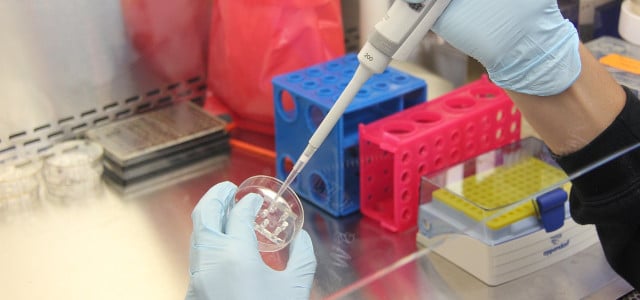Precision fermentation may have the potential to transform our current food system. Could a new cellular agriculture really turn microbes into bacon and eggs?
Precision fermentation is an innovative way of engineering high-protein foods, among other products. It is being used across the US to make milk proteins, animal fats, seafood and many other tasty animal-based favorites. And the best part is: no animals are actually involved in production.
Precision fermentation biotechnology may have the potential to bring us eggs without chickens, burgers without cows, and a world without animal cruelty and slaughter. It might even help achieve the goals of COP-27 and the Paris Agreement. Let’s find out what precision fermentation is, what it might achieve and if it really is a healthy solution for people and the planet.
Precision Fermentation
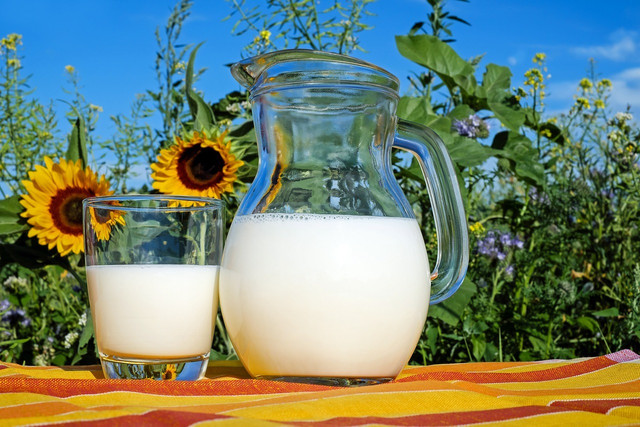
Precision fermentation is a technological upgrade from one of our oldest food processing methods. Humans have been fermenting for thousands of years to make alcohol, preserve food and create food and beverages that are rich in probiotics — like tempeh and sauerkraut juice. During fermentation, friendly microbes in food are used to preserve or enhance it — or convert it to other substances — like acids, carbon dioxide, and alcohol. Precision fermentation takes this ancient method to a whole new level.
Precision fermentation involves engineering the gene sequence of a chosen protein (or other compounds) into a microbial strain — usually bacteria or fungi. The microbes are then mixed with feedstock (usually sugar) in a bioreactor. The fungi or bacteria then become what The Good Food Institute refers to as “cell factories” — as they grow and ferment to produce the desired proteins. The microbes essentially become hosts to produce popular ingredients that are genetically identical to animal proteins.
These precisely fermented products still need to be blended with other ingredients — like sugars, fats, vitamins and minerals — to recreate a meaty or dairy taste and texture. The good news is that many different products and ingredients can be made using precision fermentation — and have been for many years.
Precision Fermentation Products
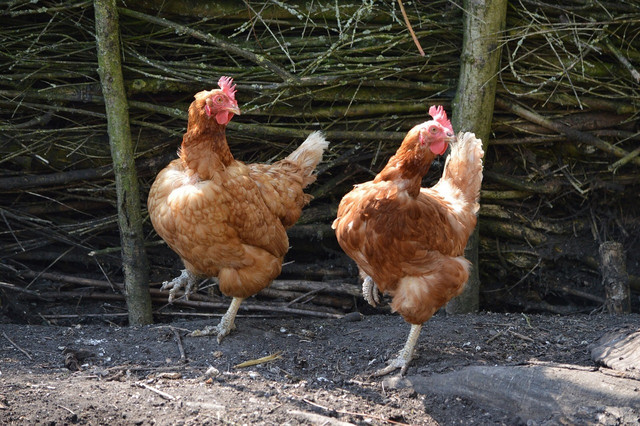


Precision fermentation is not a brand-new biotechnology. It has been used for several decades — and not just in the food sector. It is widely used by the pharmaceutical industry — such as in the production of non-animal insulin. Other therapies based on what are called recombinant proteins — such as interferons and growth hormones — are also examples of the use of precision fermentation in biopharmaceuticals.
Some of the other ways precision fermentation has been used to date include:
- 90% of cheese manufactured in the US is made with precisely fermented chymosin — the enzyme responsible for milk coagulation in cheese. (Chymosin was previously extracted from the stomachs of calves to make cheese.)
- Plant-based food manufacturer Impossible Foods uses a precisely fermented form of hemoglobin (or heme) in their burgers — which is naturally part of the red blood matrix and gives meat products that fleshy, bloody taste.
- Commercial dairy products containing precisely fermented beta lactoglobulin — a major whey protein of cow’s and sheep’s milk — were first released by the food technology company Perfect Day.
- Other companies are attempting to recreate a liquid milk containing both the whey and casein proteins (most predominant proteins that make up dairy-based milk).
- Precisely fermented proteins like collagen or fibronectin are being used as key animal-free components of meat products.
- Used to enhance formula milk with precisely fermented glycoproteins — which contribute massively to breastmilk immunity.
- Precision fermentation can produce enzymes, flavoring agents, vitamins, natural pigments, egg proteins and fats.
- Many synthetic biology companies — including Clara Foods’ egg proteins, Nourish Ingredients’ animal lipid flavours, and Motif Foodworks — are using the technology to improve the overall quality of their animal-alternative products.
Benefits of Precision Fermentation



The major and obvious benefit of precision fermentation is animal-based foods without animal cultivation. It can literally recreate proteins that are genetically identical to those found in nature. We will examine what that might mean for the planet and sustainability in a few moments. First, we want to look at some other positive impacts precision fermentation can bring.
EIT Food — which is co-funded by the EU — says that precision fermentation can be used to produce proteins with specific and improved features — like being hypoallergenic, stable, product-fit, healthier and better-tasting. It is already being used to synthesize compounds that would otherwise be too expensive and/ or complicated to create or extract from their natural sources. This opens up door for development in a vast variety of sectors globally.
Other claimed benefits of precision fermentation include:
- It’s quicker and easy to scale because livestock requires weeks and months to grow — while fermented cells require hours
- It can be implemented in any part of the world using local biomass sources
- It has a lot of room for optimization
- It is a familiar method for producing food
All of these and more positive effects associated with precision fermentation have contributed to its growing popularity and interest in the food, pharmaceutical and other industries. Environmentalists, vegans, governments, scientists and investors are also among those with an interest in the potential solutions precision fermentation might offer to our climate and environmental catastrophe.
Precision Fermentation versus Livestock Agriculture
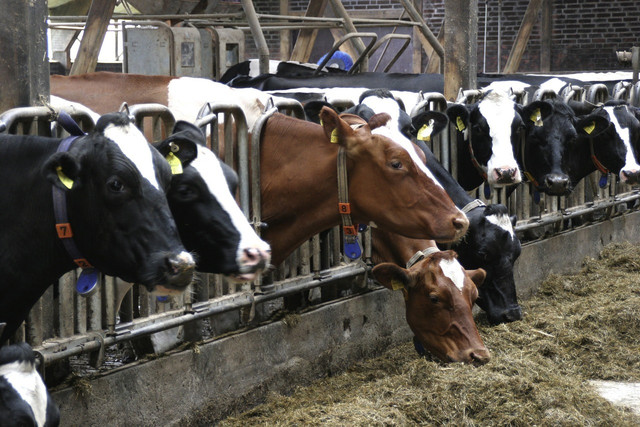


Our current global food system is a disaster, and precision fermentation could be a potential part of the solution. Despite ongoing attempts and protests from many environmental organizations and NGOs worth supporting — like Veganuary and Fridays for Future — our food chain continues to lash the planet. Agricultural practices are at the core of the crisis. Just some of the impacts our current food system has include:
- Food production accounts for over a quarter (26%) of global greenhouse gas emissions.
- Half of the world’s habitable land is used for agriculture.
- 70% of global freshwater withdrawals are used for agriculture.
- 78% of global ocean and freshwater eutrophication (pollution of waterways with nutrient-rich water) is caused by agriculture.
Most of our agricultural practices — from farms to ranches and into the oceans — need urgent review. Livestock production in particular is considered by many to be a leading driver of the water consumption, deforestation, soil destruction, water contamination and greenhouse gas emissions that are fuelling our catastrophe. The meat industry is simply unsustainable. It is also morally and ethically challenging for many, and associated with a range of animal welfare issues — particularly in the US.
99% of US livestock are not raised on sustainable farms or ranches. These animals are living on Factory farms — raising major animal welfare concerns for billions and billions of sentinel creatures. According to Animal Equality:
- Every day, 23 million land animals are slaughtered (266 every second).
- This number does not include farmed and wild aquatic animals. If farmed and wild aquatic creatures were included — the number of animals killed would increase from 10 billion animals per year to 13.8 billion.
Precision fermentation does not require animal cultivation or vast acres of land to degrade — which is why many are beginning to argue that it is a sustainable, cost-effective and environmentally friendly way to transform our current catastrophic food sector. A recent report by RethinkX — an independent thinktank that researches and predicts the rate and scale of implications technology-driven innovations have on society — predicts that precision fermentation will have helped to achieve the following in coming years:
- By 2030, demand for cow products will have fallen by 70% and the cattle industry will be effectively bankrupt in the US.
- By 2035, the demand for cow, pig, chicken and fish products will have shrunk by 80% to 90%.
- Trade relations will shift as decentralized food production becomes less constrained.
- The current industrialized, animal-agriculture system will be replaced with a Food-as-Software model — where foods are engineered by scientists and uploaded to databases that can be accessed anywhere in the world — creating a more distributed, localized, stable, and resilient food-production system.
- By 2035, about 60% of the land currently being used for livestock and feed production will be freed for other uses.
- Precision foods will be cheaper and superior to animal-derived foods by between 50-80%.
- Nutritional benefits could have a profound impact on health and reductions in chronic diseases.
- Net greenhouse gas emissions from the food sector will fall by 45% by 2030.
- Issues like global deforestation, species extinction, carbon emissions, water scarcity, and aquatic pollution will be improved.
The Guardian argues that replacing livestock with precision fermentation could “create what could be the last major opportunity to prevent Earth systems collapse [through] ecological restoration on a massive scale” — citing the following reasons for this hypothesis:
- The microbes feed on hydrogen or methanol – which can be made with renewable electricity combined with water, carbon dioxide and a very small amount of fertilizer.
- Precision fermentation produces a flour that contains a much higher concentration of protein (approximately 60 percent) than any major crop can achieve.
- Microbes can be bred to produce specific proteins and fats — and subsequently better ingredients for plant-based alternatives to meat.
- The risk of environmental contamination is reduced as the process is contained.
- Precision fermentation has the potential to eliminate the extreme dependency of many nations on food imports.
This article in The Guardian concludes with a warning, though — that precision fermentation could be captured by a handful of corporations — describing this as a “real risk” of another food economy that is the same as our current one.
A Precisely Fermented Economy



According to Forbes, precision fermentation products are already being rapidly commercialized and are receiving hundreds of millions in investments. America is leading the way in the investment and regulation of precisely fermented food. Europe is less invested and more cautious because the EU considers these to be genetically modified products, while the FDA has approved various fermentation-derived products through the ‘generally regarded as safe’ distinction.
The global precision fermentation market was estimated to be valued at $1.6 billion in 2022 and is projected to reach $36.3 billion by 2030, according to data that also shows:
- By ingredient — the whey & casein proteins formed the second-largest market after enzymes
- By microbe — bacteria are forecasted to account for the highest CAGR in the market
- The Asia-Pacific region is projected to grow at the highest rate
- Key factors driving the demand for precision-fermented egg alternatives in Asia are the increasing number of people preferring a vegan diet and the rise in the prices of eggs.
- Health benefits such as low cholesterol and high-protein content offered by alternative protein ingredients drive the demand for these products in this region.
Major stakeholders to date include:
- Perfect Day raised $300 million in July 2020 for making real vegan dairy ingredients.
- In November 2021, California-based The Every Company received $175 million to scale their animal-free eggs.
Limitations of Precision Fermentation
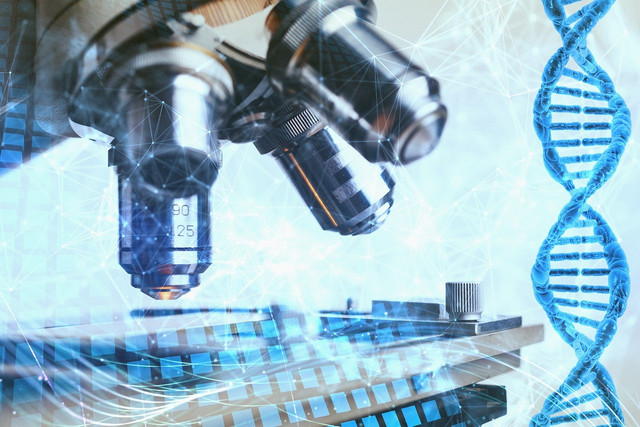


The risk of repeating history and recreating a hierarchical, unequal food system that is based on capitalism and consumerism is one risk that might arise from precision fermentation. The Food Ethics Council also highlights this, among several other concerns about the technology. It questions whether Americans really need another widespread high-protein diet — warning that we already eat too much — and highlights the following concerns:
- We could ameliorate many of our current problems without any technology at all
- A further drop in the price of protein-based foods might make healthy, whole, plant-based foods — like fruits, vegetables and whole grains — look even more expensive.
- A ready supply of inexpensive protein-rich food could result in an unbalanced and unhealthy diet
- The problem of world hunger is not a problem of production but of poor distribution and the prioritizing of private.
The Food Ethics Council is not alone in having concerns or pointing out the limitations of precision technology. Other negative aspects of precision fermentation include
- Reliance on genetic modification
- Future technology anticipation can cause delays in urgent reforms to our food system
- The cost of production is expensive and requires specialist staff
- The reliance on refined sugar as feedstock raises financial, sustainability and environmental concerns.
Fermenting the Future
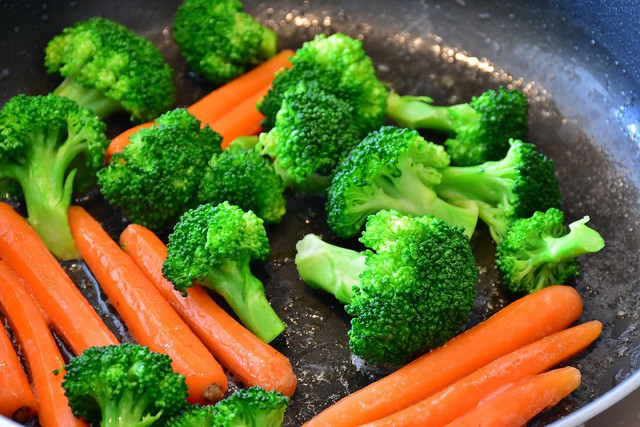


The evidence suggests that precision fermentation could contribute to an improved food system if it is implemented cautiously and fairly. An ideal world would indeed be one without animal cultivation and slaughter — and the environmental impacts that accompany this practice.
The reality is, however, that almost 1.3 billion people rely on livestock for food and livelihood security. According to the USDA, there are more than 2 million farms across the US — many of which cultivate livestock. Can they all simply be shut down and replaced with precision fermentation?
If biotechnology was to replace livestock agriculture, half of the 1.2 million jobs in U.S. beef and dairy production and their associated industries will be lost by 2030, climbing to 90% by 2035. The emerging precision fermentation industry is estimated to create 700,000 jobs by 2030 and up to one million jobs by 2035. Therefore, the balance could potentially be achieved in employment — but it may not be just so simple.
There are many things you can do to save the ocean, save the rainforest and the planet overall until a solution to the crisis is found. Even a few simple steps toward veganism will make a huge difference. There are also numerous everyday ways to combat climate change or deal with climate change denial.
If you want to gradually eliminate meat or just eat less, read up on pescatarian and flexitarian diets. You can also try some tasty new vegan meat options, like vegan ground beef or impossible burgers. Take a look at the vegan food pyramid and check out our ultimate vegan food list for beginners for more tips to precisely ferment your new lifestyle.
Read more:
- Sauerkraut Juice: Uses, Benefits, and Side Effects
- Fermented Black Garlic: The Trend, Uses, and Health Benefits
- How to Make Tempeh: Easy Homemade Tempeh Recipe
Do you like this post?






